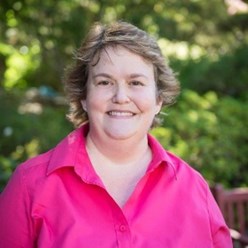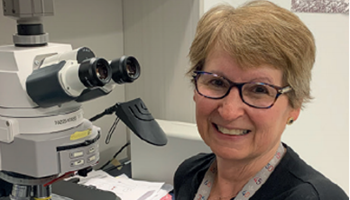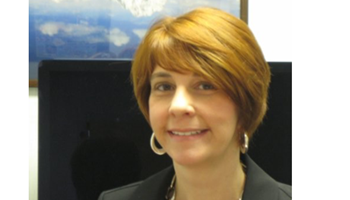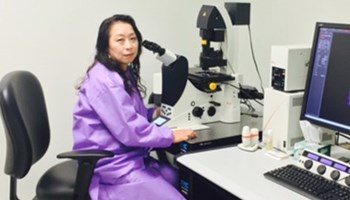Dr. Theresa C. Brown, Tulane University School of Medicine, answer questions around her AGT 2017 presentation 'FISHing with the real-life laboratory experts.'
 Dr. Brown, PhD, FACMG, CG(ASCP)CM began her career in cytogenetics as a technician in the bone marrow cytogenetics lab at IUPUI. She then received a PhD from UAB, and did a postdoctoral fellowship and cytogenetic fellowship at the NIH and Georgetown University. In addition to working as a cancer cytogeneticist at large reference labs, Dr. Brown has grown and started cytogenetics labs in Atlanta and Buffalo, was a director at City of Hope and is currently enjoying working at a much smaller lab at Tulane University.
Dr. Brown, PhD, FACMG, CG(ASCP)CM began her career in cytogenetics as a technician in the bone marrow cytogenetics lab at IUPUI. She then received a PhD from UAB, and did a postdoctoral fellowship and cytogenetic fellowship at the NIH and Georgetown University. In addition to working as a cancer cytogeneticist at large reference labs, Dr. Brown has grown and started cytogenetics labs in Atlanta and Buffalo, was a director at City of Hope and is currently enjoying working at a much smaller lab at Tulane University.
I believe everyone’s biggest obstacle is getting enough samples to perform the validation. With blood, you can beg co-workers to donate, but with bone marrows and tissue you must rely on your stellar personality to beg from colleagues and when that doesn’t work, be patient and wait for the samples to come to the lab. As I said at the workshop, documenting what you have done and what you will do once samples are available is very important for regulatory agencies.
The most important lesson I have learned is that your techs must understand cancer, that there are so many different result possibilities, and that cancer doesn’t read the textbooks. Constitutional FISH is black and white, while cancer FISH is 50 different shades of grey.
Of course! Like most scientific techniques, FISH has gotten easier to perform over the years. The best thing, I feel, is commercial competition for probes. This has led to better products and more choices for laboratories.
While FISH is a wonderful technique, I think it has reached its pinnacle. It is a quick, easy diagnostic tool, if you know what you are looking for and it will continue as such. SKY is a fun and useful research tool, but I don’t feel it is a good choice in diagnostic, prognostic, or theranostic utility.
To be totally honest, I don’t sit in front of my computer and sign out patient results all day. I am in the laboratory working with the techs, trouble shooting, validating, and teaching. I do not have time to get bored with one task.
I teach the students, residents and fellows what they should know to give me all the information I need to do the proper testing for their future patients and what the results mean. The time invested now, means better patient care in the future.

Carmen Vokaty, Assistant-Chief Medical Technologist in Cytogenetics at the McGill University Health Centre, details how her lab incorporated OGT’s CytoCell® Tissue Pretreatment kit into its workflow after struggling with a homebrew solution.
Read
Dr Jennie Thurston, Director of Cytogenetics, Carolinas Pathology Group, Atrium Health, explains how OGT's CytoCell® FISH probes were seamlessly incorporated into the automated workflow for fast, high quality results.
Read
Megumi Hada, PhD, Senior Research Scientist, RaISE, Prairie View, Texas A&M. answers our questions on space radiation, how it affects astronaut health, and what her research can teach us about the biological effects of radiation here on Earth.
Read